
JOURNAL OF SOLUTION CHEMISTRY
Scope & Guideline
Pioneering Insights into Molecular Interplay
Introduction
Aims and Scopes
- Thermodynamic Modeling:
The journal emphasizes the development and application of thermodynamic models to describe solubility, phase equilibria, and chemical interactions within solutions, often utilizing models such as UNIQUAC, NRTL, and PC-SAFT. - Experimental Investigations:
A significant portion of the research published involves experimental measurements of solubility, viscosity, density, and other physicochemical properties across a variety of solvent systems and temperatures. - Ionic Liquids and Deep Eutectic Solvents:
Research on the properties and applications of ionic liquids and deep eutectic solvents is a core area, focusing on their unique solvation characteristics and potential uses in various applications, including green chemistry. - Molecular Interactions and Speciation:
The journal includes studies on the molecular-level interactions in solutions, including complex formation, hydration dynamics, and solvation effects, often employing advanced spectroscopic and computational techniques. - Environmental and Biological Applications:
Research that bridges solution chemistry with environmental and biological contexts, such as solubility studies relevant to drug formulation, extraction processes, and pollutant interactions, is also prevalent.
Trending and Emerging
- Green Chemistry and Sustainable Solvents:
There is a growing emphasis on the use of green chemistry principles, particularly in the study and application of ionic liquids and deep eutectic solvents, which are seen as more environmentally friendly alternatives to traditional solvents. - Advanced Computational Techniques:
The integration of computational methods, including molecular dynamics simulations and quantum chemistry approaches, is increasingly common, enhancing the understanding of molecular interactions and solvation phenomena. - Biological and Pharmaceutical Applications:
Research focusing on the solubility and stability of pharmaceuticals in various solvent systems is on the rise, driven by the need for improved drug delivery systems and formulations. - Complexation and Speciation Studies:
There is an emerging interest in the detailed study of complexation and speciation in solution, particularly involving metal ions and biologically relevant compounds, reflecting a broader trend towards understanding solution behavior at a molecular level. - Machine Learning in Solubility Predictions:
The application of machine learning and artificial intelligence approaches to predict solubility and thermodynamic properties is gaining momentum, indicating a shift towards data-driven methodologies in solution chemistry.
Declining or Waning
- Traditional Solvent Systems:
There is a noticeable decrease in studies focused on conventional solvent systems, as researchers increasingly explore novel solvents like ionic liquids and deep eutectic solvents, which offer unique properties not found in traditional solvents. - Basic Solubility Studies:
Research centered on basic solubility measurements without significant theoretical or practical implications has become less frequent, possibly due to a shift towards more complex and application-driven studies. - High-Pressure Solubility Studies:
Papers addressing solubility under high-pressure conditions are less common, suggesting a waning interest in this area, possibly due to the increasing complexity and costs associated with high-pressure experimental setups.
Similar Journals
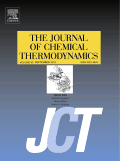
JOURNAL OF CHEMICAL THERMODYNAMICS
Exploring the Depths of Molecular InteractionsThe JOURNAL OF CHEMICAL THERMODYNAMICS serves as a pivotal platform for the dissemination of high-quality research in the field of thermodynamics and its applications across various scientific disciplines. Published by Academic Press Ltd - Elsevier Science Ltd, this esteemed journal, with an ISSN of 0021-9614 and E-ISSN 1096-3626, strives to contribute to the understanding of the thermodynamic properties of chemicals, materials, and molecular interactions. Covering a broad spectrum of topics from atomic and molecular physics to general materials science, it consistently ranks in the Q2 category across multiple fields including Physics and Astronomy, Chemistry, and Materials Science. With its convergence years extending from 1969 to 2025, the journal boasts a respected history and a commitment to fostering scholarly dialogue among researchers, professionals, and students alike. Though it is not an Open Access journal, its rigorous peer-review process ensures that published articles meet the highest standards of scientific excellence, making it an essential resource for anyone seeking to stay at the forefront of chemical thermodynamics research.

RUSSIAN JOURNAL OF INORGANIC CHEMISTRY
Bridging Disciplines in Inorganic and Materials ScienceThe Russian Journal of Inorganic Chemistry is a distinguished publication that delves into the fundamental and applied aspects of inorganic chemistry. Published by MAIK Nauka/Interperiodica/Springer, this journal has established itself as a vital resource for researchers, professionals, and students alike, contributing significantly to the fields of Inorganic Chemistry, Materials Science, and Physical and Theoretical Chemistry. With an ISSN of 0036-0236 and an E-ISSN of 1531-8613, the journal is indexed for easy access and citation. Though the journal currently operates under a subscription model, its commitment to disseminating high-quality research and fostering scientific discourse remains steadfast. The journal has been maintaining a consistent record since its inception, and its positioning in the Q3 quartile across various chemistry categories in 2023 underscores its relevance in the academic community. As it continues through its converged years from 1996 to 2024, the Russian Journal of Inorganic Chemistry plays a pivotal role in enhancing the understanding and advancement of inorganic chemistry, making it an indispensable tool for anyone engaged in this dynamic field.
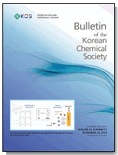
BULLETIN OF THE KOREAN CHEMICAL SOCIETY
Unveiling innovative research in the heart of chemistry.BULLETIN OF THE KOREAN CHEMICAL SOCIETY, published by WILEY-V C H VERLAG GMBH, is a prominent journal in the field of chemistry, with a specific emphasis on miscellaneous chemical research. With an ISSN of 0253-2964 and E-ISSN 1229-5949, this journal serves as a pivotal platform for researchers, professionals, and students who are eager to showcase innovative studies that address both foundational and emerging topics in the discipline. Boasting a commendable Q2 ranking in the 2023 chemistry quartiles, the journal ranks within the top 50th percentile in Scopus, reflecting its commitment to high-quality scientific discourse. The content published within its pages from 1996 to 2024 covers a vast array of subjects, ensuring a multidisciplinary approach to chemical research. The journal’s impact in the academic community is underscored by its accessibility to a global audience, making it an essential resource for those wishing to stay at the forefront of chemical advancements.

Physical Chemistry Research
Advancing the frontiers of physical chemistry research.Physical Chemistry Research, published by the Iranian Chemical Society, is an esteemed academic journal dedicated to advancing knowledge within the fields of *Fluid Flow and Transfer Processes*, *Physical and Theoretical Chemistry*, and *Statistical and Nonlinear Physics*. Since its inception in 2013, the journal has established a crucial platform for researchers, professionals, and students to share innovative findings and methodologies, enhancing collaboration and knowledge dissemination in the physical chemistry community. With impactful contributions recognized in Quartile 3 and Quartile 4 classifications across various categories, the journal is positioned to cultivate emerging research trends as it continues to converge through 2024. Researchers can benefit from diverse perspectives on crucial phenomena in physical chemistry, as the journal is indexed in prominent databases, further increasing accessibility and visibility. The *open access* policy ensures that cutting-edge research remains available to a broad audience, promoting the growth of the discipline globally.
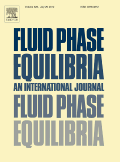
FLUID PHASE EQUILIBRIA
Exploring the Dynamics of Fluid SystemsFLUID PHASE EQUILIBRIA, published by Elsevier, stands as a pivotal platform within the realm of chemical engineering and physical chemistry since its inception in 1977. With an ISSN of 0378-3812 and an E-ISSN of 1879-0224, this esteemed journal features a diverse array of research dedicated to the principles and applications of phase equilibria in fluid systems. Ranked within the top quartiles (Q2) across multiple categories, including Chemical Engineering and Physical and Theoretical Chemistry, it highlights its significance with Scopus ranks that place it prominently in comparison to its peers. Although it does not currently offer open access, the journal's extensive content contributes significantly to scholarly discourse, making it an invaluable resource for researchers, professionals, and students alike. Operating from Amsterdam, Netherlands, FLUID PHASE EQUILIBRIA serves as a central hub for advancing knowledge and fostering collaboration in fluid phase studies, promising insights that span theoretical analyses to practical implementations.

CONTRIBUTIONS TO MINERALOGY AND PETROLOGY
Exploring Earth’s Secrets Through Rigorous ResearchCONTRIBUTIONS TO MINERALOGY AND PETROLOGY, published by SPRINGER, is a premier journal in the fields of geochemistry, petrology, and geophysics, boasting an impressive impact factor that reflects its status as a leader in the discipline. With a history spanning from 1966 to 2024, this journal has consistently provided a platform for high-quality research that influences our understanding of earth materials and processes. Ranked in the top quartile (Q1) in both geochemistry and petrology, as well as geophysics, it stands out with Scopus rankings of #24 out of 165 in Geophysics and #37 out of 154 in Geochemistry and Petrology, indicating its critical role in advancing scientific knowledge. As a vital resource for researchers, professionals, and students alike, the journal invites contributions that foster collaboration and innovation in the study of minerals and rocks. Although it does not currently offer open access, its scholarly rigor and relevance to contemporary issues ensure it remains an indispensable part of the academic discourse within this field.

DOKLADY PHYSICAL CHEMISTRY
Fostering Innovation in Physical and Theoretical ResearchDOKLADY PHYSICAL CHEMISTRY is a prominent peer-reviewed journal published by MAIK NAUKA/INTERPERIODICA/SPRINGER, focusing on advancements and research in the field of Physical and Theoretical Chemistry. With the ISSN 0012-5016 and E-ISSN 1608-3121, this journal serves as a vital platform for researchers and practitioners to disseminate their findings and insights from 1996 to the present. Despite its current Q4 ranking in the 2023 category of Physical and Theoretical Chemistry, the journal has shown significant potential for visibility and engagement within the academic community, ranking #149 out of 189 in its respective field according to Scopus metrics, highlighting its dedicated readership. While the journal is not open access, it remains an essential resource for those seeking in-depth research articles, reviews, and commentary within this dynamic discipline. As the field continues to evolve, DOKLADY PHYSICAL CHEMISTRY plays a crucial role in fostering scientific dialogue and collaboration among researchers, professionals, and students worldwide.

Central European Journal of Energetic Materials
Elevating Knowledge in Energetic Material ApplicationsWelcome to the Central European Journal of Energetic Materials, a distinguished publication in the field of energetic materials, published by the INST INDUSTRIAL ORGANIC CHEMISTRY in Poland. This journal, with ISSN 1733-7178, has been a vital platform for researchers since its inception in 2009, promoting the latest advancements and discoveries in the dynamic fields of Materials Chemistry and Organic Chemistry. With an admirable presence in the academic community, it boasts a Q3 ranking in Materials Chemistry and a Q4 ranking in Organic Chemistry for 2023, showcasing its contribution to foundational research despite competitive challenges. Researchers looking to disseminate their findings will find this journal a reputable venue, supported by rigorous peer-review processes and a commitment to open dialogue within the scientific community. The journal is pivotal for academics, professionals, and students interested in the synthesis, characterization, and application of energetic materials, making it a notable resource for understanding the complexities and innovations within this specialized domain.
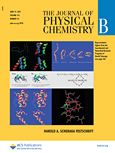
JOURNAL OF PHYSICAL CHEMISTRY B
Exploring Interdisciplinary Applications of ChemistryJournal of Physical Chemistry B, published by the American Chemical Society, is a leading international platform dedicated to advancing our understanding of physical chemistry and its applications in various interdisciplinary fields. With an impressive 2023 Impact Factor, and categorized in Q1 for Physical and Theoretical Chemistry as well as Surfaces, Coatings and Films, this journal showcases cutting-edge research that contributes significantly to materials science, supporting the innovative development of new materials and technologies. The journal, established in 1997 and converging its years of publication to 2024, maintains rigorous peer-review standards and is accessible to a global audience, enabling the dissemination of pivotal research findings. Moreover, it is renowned for its comprehensive coverage in the realms of materials chemistry and miscellaneous medical applications, making it a vital resource for researchers, professionals, and students alike in their pursuit of excellence in scientific inquiry.
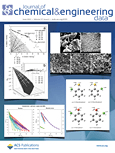
JOURNAL OF CHEMICAL AND ENGINEERING DATA
Exploring the Intersection of Chemistry and Engineering ExcellenceThe Journal of Chemical and Engineering Data (ISSN: 0021-9568, E-ISSN: 1520-5134) is a prestigious publication by the American Chemical Society, dedicated to disseminating high-quality research within the fields of chemical engineering and chemistry. With its history dating back to 1956, the journal has evolved to encompass a wide array of topics essential to the advancement of both disciplines, reaching an impressive convergence year of 2024. Positioned in the Q2 quartile for both Chemical Engineering and Chemistry, it boasts a commendable ranking of 95th out of 273 in General Chemical Engineering and 146th out of 408 in General Chemistry, reinforcing its significance within the academic community. As a vital resource for researchers, professionals, and students alike, the journal encourages rigorous submissions that contribute to the understanding and application of chemical and engineering data, despite its traditional access model. By bridging theoretical insights with practical applications, the Journal of Chemical and Engineering Data remains an indispensable tool for those seeking to drive innovation and efficiency in the chemical sciences.